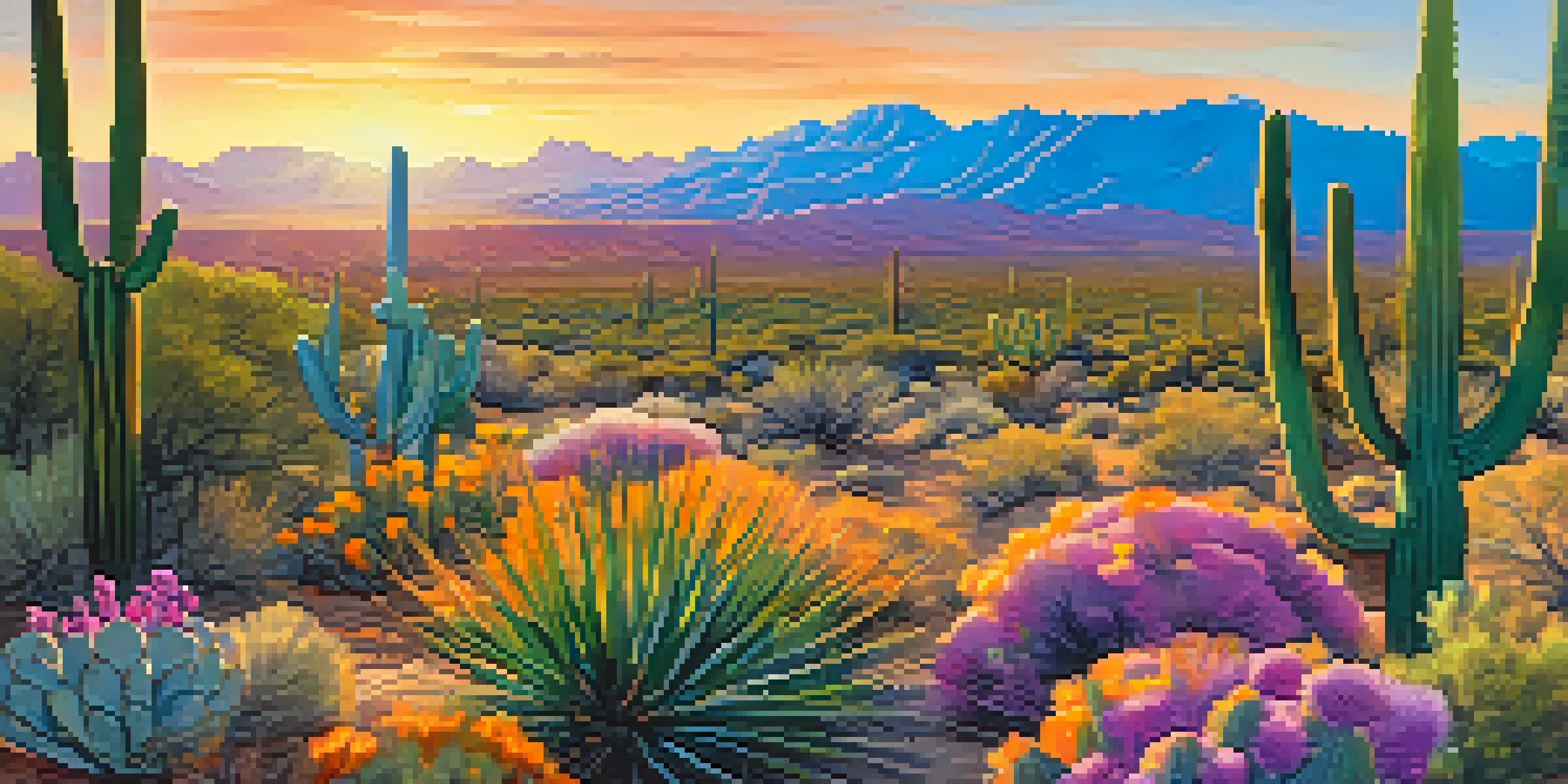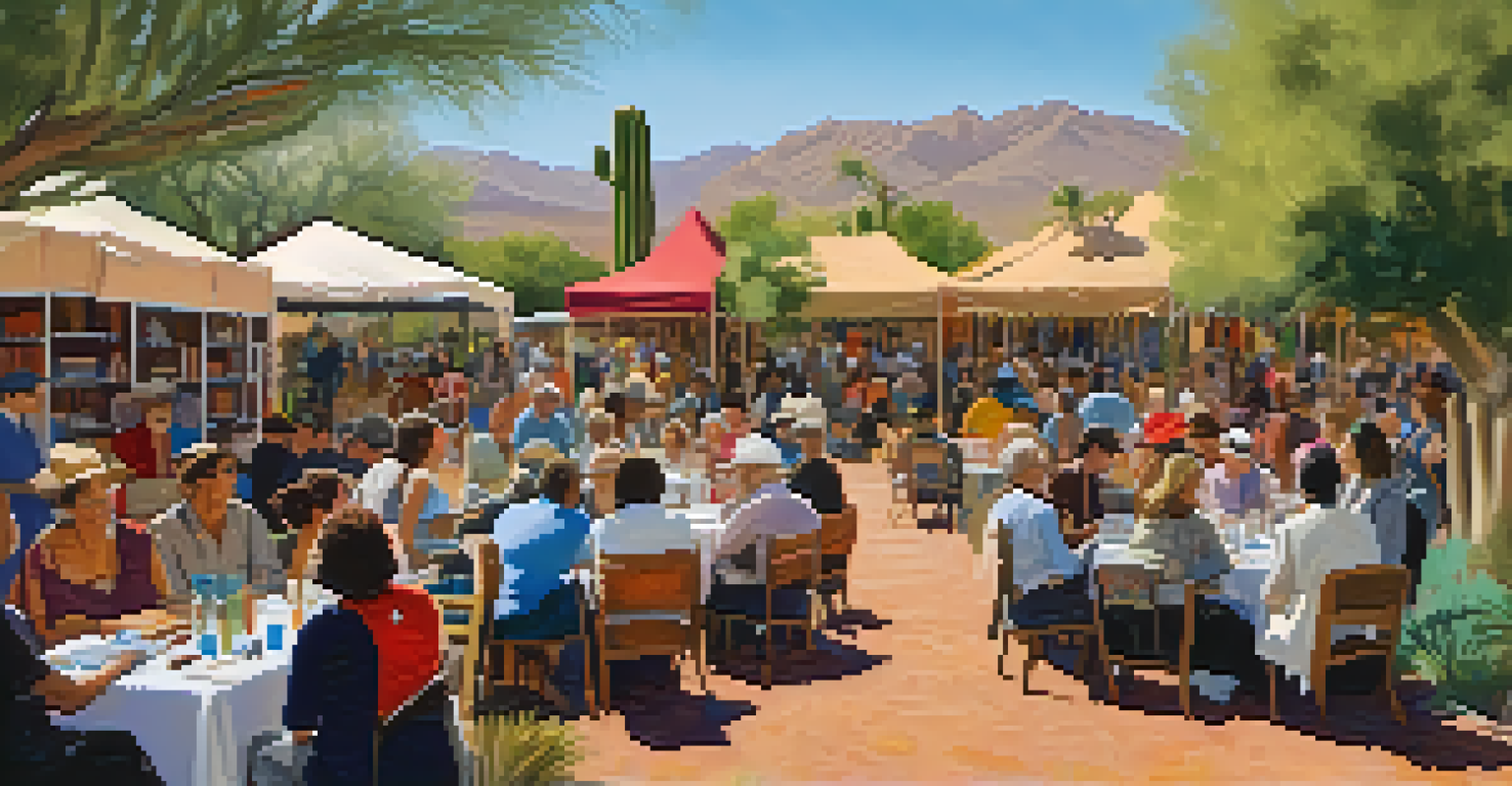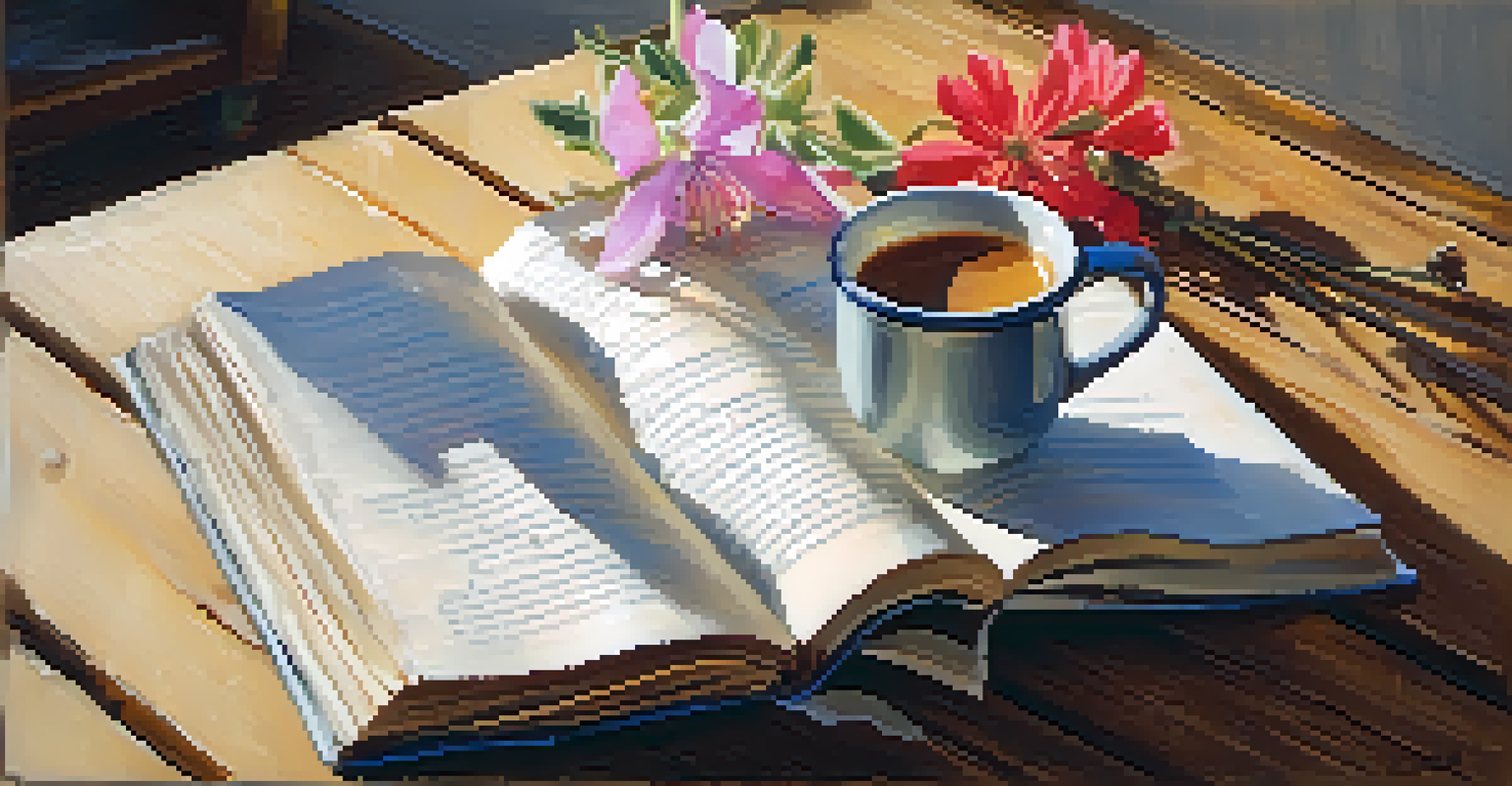Notable Tucson Authors Who Shaped Southwestern Literature

Introduction to Tucson's Literary Landscape
Tucson, Arizona, is more than just a desert city; it's a vibrant literary hub. Home to a diverse array of authors, Tucson has shaped Southwestern literature through its unique cultural blend of Native American, Hispanic, and Anglo influences. These writers have captured the essence of life in the Southwest, bringing stories that resonate with both locals and readers worldwide.
The stories we tell are a reflection of the culture we live in and the experiences we share.
The city's literary scene is rich with history and creativity, often reflecting the struggles and triumphs of its inhabitants. From poetry to novels, Tucson's authors have explored themes of identity, place, and community. Their works serve as a window into the Southwestern experience, making Tucson a pivotal location for literary expression.
In this article, we will delve into some of the most notable authors from Tucson and examine how their works have contributed to the broader narrative of Southwestern literature. Their stories not only entertain but also challenge and inspire readers to understand the complexities of life in this unique region.
Barbara Kingsolver: A Voice for the Southwest
Barbara Kingsolver is a celebrated author whose works often reflect her deep connection to the Southwest. Growing up in Kentucky, she later moved to Tucson, where the landscape and culture profoundly influenced her writing. Her novels, such as 'The Bean Trees' and 'Poisonwood Bible,' explore themes of community, environmentalism, and the human condition, all set against the backdrop of the Southwestern landscape.

Kingsolver’s storytelling is characterized by rich imagery and relatable characters, making her narratives both poignant and accessible. She often weaves in elements of her own life experiences, which resonate with readers, drawing them into the world she creates. Her ability to intertwine personal and political themes has established her as a crucial voice in contemporary literature.
Tucson: A Literary Hub of Diversity
Tucson's literary landscape is shaped by a diverse array of authors who draw on the region's rich cultural influences.
In addition to her novels, Kingsolver is also a passionate advocate for sustainable agriculture and environmental conservation, further highlighting her commitment to the Southwestern landscape. This blend of activism and storytelling not only enhances her literary contributions but also inspires readers to reflect on their relationship with the environment.
Luis Alberto Urrea: Bridging Cultures Through Story
Luis Alberto Urrea is an author whose works often explore the intersection of Mexican and American cultures. Born in Tijuana and raised in San Diego, Urrea has spent significant time in Tucson, infusing his narratives with the vibrant culture of the Southwest. His novels, such as 'The Hummingbird's Daughter' and 'Into the Beautiful North,' reflect the complexities of border life and the rich tapestry of identity.
We are all stories in the end; just make it a good one.
Urrea's writing is known for its lyrical prose and ability to evoke strong emotions. He draws upon his own experiences as a Mexican-American, offering readers a unique perspective on the challenges and beauty of living between two worlds. His stories often feature themes of love, loss, and resilience, resonating with a wide audience.
In addition to fiction, Urrea has written essays and poetry that further showcase his talent for storytelling. His contributions to Southwestern literature not only highlight the region's cultural diversity but also invite readers to consider the broader implications of immigration and identity in contemporary society.
Tucson's Poetry Scene: A Rich Tapestry of Voices
Tucson's literary landscape is not limited to prose; it also boasts a vibrant poetry scene. Poets like Ofelia Dumas Lachtman and Richard Shelton have made significant contributions to the art form, capturing the essence of life in the Southwest through their verses. Their work often reflects personal experiences, cultural heritage, and the beauty of the desert landscape.
Ofelia Dumas Lachtman, a poet and educator, explores themes of identity and cultural heritage in her poetry. Her work often resonates with those who have experienced the challenges of navigating multiple identities. Similarly, Richard Shelton's poems frequently reflect his deep connection to the natural world, drawing inspiration from the Sonoran Desert's unique beauty.
Notable Authors Reflect Southwest Life
Writers like Barbara Kingsolver and Luis Alberto Urrea explore themes of identity and community, bringing the Southwestern experience to life.
The poetry scene in Tucson serves as a platform for diverse voices, encouraging both established and emerging poets to share their stories. Through readings, workshops, and local literature events, Tucson fosters a community that appreciates the power of words, making it a hub for poetic expression in the Southwest.
Silko and the Influence of Native American Literature
Leslie Marmon Silko is a prominent figure in Native American literature, and her connection to the Southwest is deeply rooted in her heritage. As a member of the Laguna Pueblo tribe, Silko's works often reflect the landscape, culture, and spirituality of Native American life. Her novel, 'Ceremony,' is a seminal work that explores themes of healing and identity through the lens of Native traditions.
Silko's writing is known for its rich descriptions and incorporation of oral storytelling traditions, which are central to many Native cultures. By weaving together personal narratives and cultural history, she brings to life the struggles and triumphs of her people. Her contributions not only enhance the literary landscape of Tucson but also shed light on the broader issues facing Native communities.
Through her work, Silko has played a crucial role in elevating Native American voices within the literary canon. Her stories encourage readers to engage with and understand the complexities of Native identity, making her an essential figure in Southwestern literature.
The Legacy of Tucson's Literary Festivals
Tucson is home to several literary festivals that celebrate the written word and bring together authors, poets, and readers from diverse backgrounds. Events like the Tucson Festival of Books highlight local talent while also featuring nationally recognized authors. These festivals provide a platform for discussions on literature, writing workshops, and opportunities for networking among literary enthusiasts.
The festivals not only promote the works of Tucson authors but also foster a sense of community and collaboration within the literary world. They encourage readers to engage with the authors and their stories, creating an environment that celebrates the importance of literature in society. Attendees can immerse themselves in a variety of genres, from fiction to poetry to memoir.
Emerging Voices Shape Future Literature
New authors in Tucson are introducing fresh perspectives and narratives that reflect contemporary issues and enrich the region's literary heritage.
By hosting such events, Tucson reinforces its identity as a literary hub in the Southwest. The festivals help cultivate a love for reading and writing while also showcasing the rich tapestry of voices that define Tucson's literary landscape.
Emerging Voices: The Future of Tucson Literature
As the literary landscape in Tucson continues to evolve, new voices are emerging to shape its future. Young authors and poets are drawing inspiration from the rich cultural tapestry of the Southwest, exploring contemporary issues through their work. These emerging talents are infusing fresh perspectives into Tucson's literary scene, ensuring that it remains vibrant and relevant.
Writers like Mariana Enriquez and David Foster Wallace have begun to make their mark, bringing attention to diverse narratives that reflect the complexities of modern life in the Southwest. Their stories often challenge traditional narratives, offering insights into the experiences of marginalized communities and the impact of socioeconomic factors on identity.

The rise of new authors in Tucson signals a promising future for Southwestern literature. As these voices continue to emerge and gain recognition, they will undoubtedly contribute to the ongoing conversation about identity, culture, and community in the region, further enriching Tucson's literary heritage.